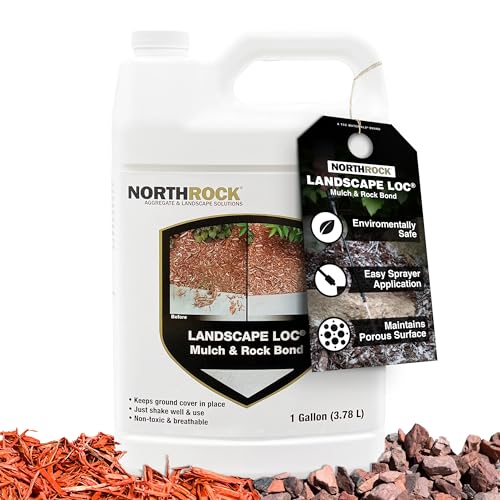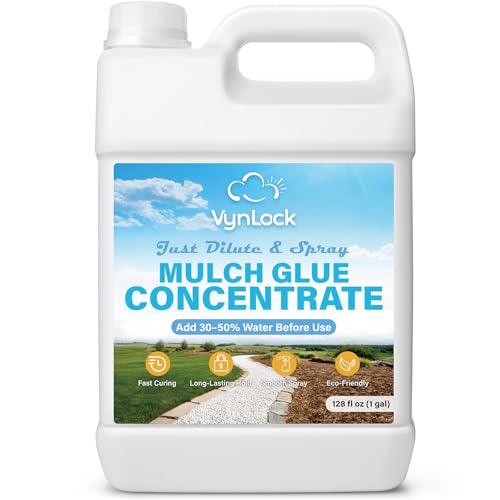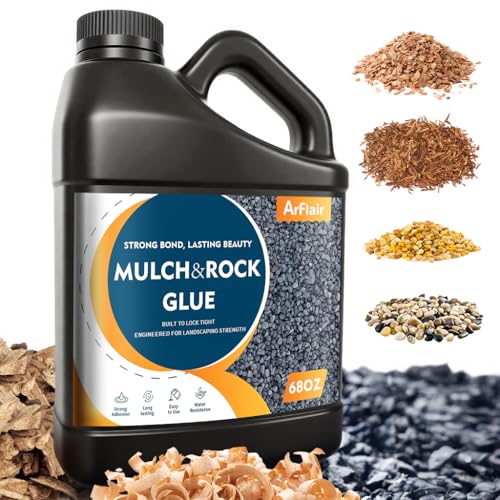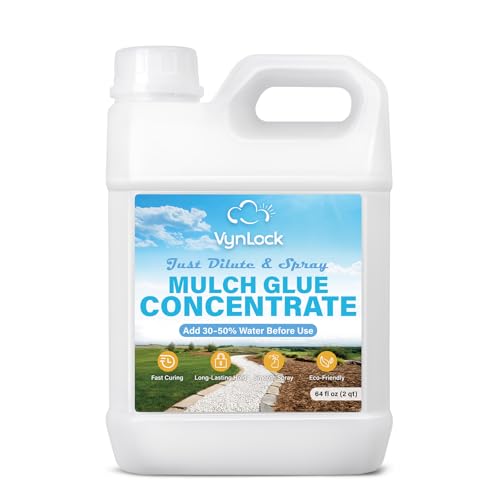Landscaping can be a great way to enhance the beauty of your property and add value to your home. However, with so many options available, it can be challenging to decide which materials to use. Rocks and mulch are two popular choices for landscaping, and each has its advantages and disadvantages.

When it comes to choosing between rocks and mulch, it’s essential to understand the basics of landscaping. Landscaping involves designing and creating an outdoor space that is both functional and aesthetically pleasing. It involves careful planning, selection of materials, and implementation of the design. The right materials can make a significant difference in the success of your landscaping project.
Comparing rocks and mulch is a great place to start when deciding which materials to use for your landscaping. Rocks and mulch offer different benefits, and the choice ultimately comes down to personal preference and the specific needs of your project. In the following sections, we will explore the advantages and disadvantages of using rocks and mulch in your landscaping project.
Key Takeaways
- Landscaping involves careful planning and selection of materials to create an outdoor space that is both functional and aesthetically pleasing.
- Rocks and mulch both have their advantages and disadvantages, and the choice ultimately comes down to personal preference and the specific needs of your project.
- When deciding between rocks and mulch, consider factors such as cost, maintenance, environmental impact, and aesthetic appeal.
Understanding Landscaping Basics


Defining Landscaping Materials
Landscaping is the art of designing and creating beautiful outdoor spaces. It involves the use of various materials, including plants, soil, rocks, and mulch. Rocks and mulch are two popular materials used for ground cover in landscaping.
Rocks are usually made of natural stones, such as granite, limestone, or sandstone. They come in different sizes, shapes, and colors, and can be used to create various landscape features, such as pathways, borders, and retaining walls.
Mulch, on the other hand, is a layer of organic material that is spread over the soil surface. It can be made of various materials, such as wood chips, bark, straw, or leaves. Mulch is used to retain moisture, suppress weed growth, and regulate soil temperature.
Importance of Ground Cover
Ground cover is an essential aspect of landscaping. It not only enhances the aesthetic appeal of outdoor spaces but also provides various benefits to the soil and plants.
Ground cover helps to retain moisture in the soil, which is crucial for plant growth. It also helps to regulate soil temperature, preventing the soil from becoming too hot or too cold. Furthermore, ground cover helps to suppress weed growth, which can compete with plants for water and nutrients.
When choosing between rocks and mulch for ground cover, it is essential to consider the specific needs of your landscape. Rocks are durable and long-lasting, but they can be expensive and difficult to move. Mulch is affordable and easy to install, but it needs to be replaced every year or two.
Overall, both rocks and mulch are excellent choices for ground cover in landscaping. It ultimately comes down to personal preference, budget, and the specific needs of your outdoor space.
Comparing Rocks and Mulch
https://www.youtube.com/watch?v=fsDZW5Ae3sY&embed=true
If you’re planning to landscape your garden, you may be wondering which is better: rocks or mulch. Both have their own advantages and disadvantages, so it’s important to weigh them carefully before making a decision.
Visual Appeal and Aesthetics
One of the most significant differences between rocks and mulch is their visual appeal. Rocks can give your garden a modern, sleek look, while mulch can provide a more natural, organic feel. Rocks come in a variety of sizes, shapes, and colors, which can be combined to create a unique design. On the other hand, mulch is available in different colors, but it is mostly used in shades of brown, black, and red.
Impact on Soil and Plant Health
Another factor to consider is the impact of rocks and mulch on soil and plant health. Rocks do not decompose, so they do not add any organic material to the soil. They can, however, help retain moisture and prevent soil erosion. Mulch, on the other hand, is made from organic material such as bark chips, wood chips, pine needles, straw, or leaves. As it decomposes, it adds nutrients to the soil, which can improve plant growth. It also helps regulate soil temperature and moisture levels.
Maintenance and Care Considerations
Maintenance and care are also important considerations when choosing between rocks and mulch. Rocks are generally low-maintenance and can last for years without needing to be replaced. However, they can accumulate debris and weed seeds, which can be challenging to remove. Mulch, on the other hand, needs to be replaced every one to two years, but it is effective in suppressing weed growth. It also requires regular watering to prevent it from drying out.
In conclusion, both rocks and mulch have their own advantages and disadvantages. When choosing between them, consider your landscape design, maintenance needs, and the impact on soil and plant health. Ultimately, the decision will depend on your personal preferences and the specific needs of your garden.
Benefits of Using Rocks
https://www.youtube.com/watch?v=BFcbYeH8RaA&embed=true
If you’re considering landscaping with rocks, there are many benefits to this hardscape material. Rocks are a popular choice for landscaping because they are durable, low maintenance, and come in a variety of colors, shapes, and sizes. Here are some of the benefits of using rocks for your landscaping project:
Durability and Longevity
One of the biggest benefits of using rocks in your landscaping is their durability and longevity. Unlike organic materials like mulch, rocks won’t decompose over time, making them a long-lasting solution for your landscaping needs. River rock, pea gravel, and lava rocks are popular choices for landscaping because they are heavy and won’t easily blow away in windy conditions.
Weed Control and Erosion Prevention
Rocks are also an effective way to control weeds and prevent erosion. By covering the soil with rocks, you can prevent weed seeds from germinating and growing. Additionally, rocks can help prevent soil erosion by holding the soil in place during heavy rain or wind. This is especially important for sloped areas where erosion is more likely to occur.
Water Conservation and Drainage
Another benefit of using rocks in your landscaping is water conservation and drainage. Rocks can help conserve water by reducing evaporation from the soil surface. Additionally, rocks can improve drainage by allowing water to flow through them, preventing water from pooling in certain areas of your yard. This is especially important for areas that are prone to flooding or have poor drainage.
Overall, rocks are a great choice for landscaping because of their durability, low maintenance, and ability to control weeds, prevent erosion, and conserve water. River rocks, pea gravel, and lava rocks are popular choices for their aesthetic appeal and functionality. Additionally, rocks are fireproof and won’t compact over time, making them a long-lasting solution for your landscaping needs.
« Is Landscaping Good Money? Exploring the Earnings Potential of Landscaping Careers Is Landscaping Considered Part of Agriculture? »
Advantages of Mulch
https://www.youtube.com/watch?v=298N5mloMr8&embed=true
Mulch is a popular choice for landscaping due to its numerous benefits. In this section, we will explore some of the advantages of using mulch in your landscaping projects.
Soil Enrichment and Insulation
One of the main benefits of using mulch is that it helps to enrich the soil. Mulch is typically made from organic materials such as shredded bark, shredded leaves, or compost, which adds nutrients to the soil as it breaks down. This can help to improve soil health and promote stronger plant growth.
Mulch also acts as a natural insulation layer for your soil. During the winter months, it helps to protect the soil from extreme temperature fluctuations, which can be harmful to plant roots. In the summer months, it helps to keep the soil cool and moist, which is essential for plant health.
Plant Growth and Protection
Mulch can also help to promote plant growth and protect your plants from damage. By adding nutrients to the soil, mulch can help your plants to grow stronger and healthier. Additionally, mulch helps to retain moisture in the soil, which is essential for plant growth.
Mulch can also help to protect your plants from soil erosion and other types of damage. By creating a protective layer over the soil, mulch helps to prevent soil from washing away during heavy rain or wind. This can help to keep your plants in place and protect them from damage.
Seasonal Flexibility and Renewal
Another advantage of using mulch is its seasonal flexibility. Depending on the type of mulch you use, you can easily switch out your mulch to suit the season. For example, you can use a lighter-colored mulch in the summer to reflect sunlight and keep the soil cool, and a darker-colored mulch in the winter to absorb sunlight and keep the soil warm.
Mulch is also relatively affordable and easy to replace. While some types of mulch may require annual replacement, others can last for several years before needing to be replaced. This can help to lower your long-term landscaping costs and keep your plants healthy and thriving.
In summary, mulch offers numerous benefits for your landscaping projects. From soil enrichment and insulation to plant growth and protection, mulch is a versatile and affordable option for homeowners looking to improve their outdoor spaces.
Cost Considerations
https://www.youtube.com/watch?v=P_2HlwZy0Aw&embed=true
When deciding between rocks and mulch for your landscaping needs, cost is an important factor to consider. Here are some cost considerations to keep in mind:
Initial Investment vs. Long-Term Expense
Rocks tend to have a higher initial investment cost than mulch. However, rocks can last for many years without needing to be replaced, making them a more cost-effective option in the long run. Mulch, on the other hand, needs to be replaced annually, which can add up over time.
Availability and Local Pricing
The availability and local pricing of rocks and mulch can also impact the cost. Depending on where you live, one option may be more affordable than the other. For example, if you live in an area with an abundance of rocks, they may be more affordable than mulch. Conversely, if you live in an area where rocks are scarce, they may be more expensive than mulch.
Here are some additional cost considerations to keep in mind:
- If you plan on replacing your landscaping often, mulch may be a more affordable option due to its lower initial cost.
- If you have a large area to cover, rocks may be a more affordable option due to their longevity.
- If you live in an area with wildfires, rocks may be a more cost-effective option since they are nonflammable and can provide defensible space around your home.
Ultimately, the cost of rocks vs. mulch will depend on your specific landscaping needs and budget.
Environmental Impact and Sustainability

When it comes to landscaping, the environmental impact and sustainability of your choices should be a top priority. Choosing eco-friendly options and organic choices can make a big difference in reducing your carbon footprint and supporting wildlife.
Eco-Friendly Options and Organic Choices
Mulch is an organic material that can be made from a variety of sources, including leaves, grass clippings, and wood chips. Using organic mulch can help reduce the amount of waste in landfills and provide nutrients to the soil as it breaks down. Additionally, choosing organic mulch that is free of pesticides and herbicides can help protect the environment and wildlife.
Rocks, on the other hand, are not organic and do not provide any nutrients to the soil. They also require a significant amount of energy to mine, transport, and install. However, using rocks as a landscaping material can be more sustainable if they are sourced locally and are a byproduct of another industry, such as construction.
Reducing Carbon Footprint and Supporting Wildlife
Using organic materials such as mulch can help reduce your carbon footprint by reducing the amount of waste going to landfills and by providing nutrients to the soil, which can help plants grow and sequester carbon. Additionally, using native plants and seeds in your landscaping can help support local wildlife and reduce the need for irrigation and fertilization.
Composting your yard waste and using it as mulch can also help reduce your carbon footprint and provide a sustainable source of organic material for your landscaping. By reducing the amount of waste going to landfills and providing nutrients to the soil, you can help create a more sustainable and eco-friendly landscape.
Overall, when choosing between rocks and mulch for your landscaping, it is important to consider the environmental impact and sustainability of your choices. Choosing organic mulch and native plants, composting your yard waste, and sourcing materials locally can all help reduce your carbon footprint and support the environment and wildlife.
Practical Tips for Landscaping
https://www.youtube.com/watch?v=kj4N7E9ri4E&embed=true
When it comes to landscaping, choosing the right material is crucial. Rocks and mulch are two popular options, but which one is better for your needs? Here are some practical tips to help you decide.
Choosing the Right Material for Your Needs
Before you start your landscaping project, consider your needs. Do you want a low-maintenance option? Are you looking for something that will last a long time? Do you want to create a specific look or feel in your yard? Answering these questions will help you choose the right material.
If you want a low-maintenance option, rocks are a good choice. They require very little care and can last for years. However, they can be more expensive than mulch.
If you want a more natural look, mulch is a good choice. It comes in a variety of colors and textures and can be used to create paths and borders. However, it does require regular maintenance, such as watering and replacement.
Expert Advice on Installation and Upkeep
Whether you choose rocks or mulch, it’s important to get expert advice on installation and upkeep. A professional landscaper can help you choose the right material for your needs and provide guidance on how to install and care for it.
When it comes to installation, timing is important. For example, if you’re using mulch, it’s best to wait until the soil has warmed up in the spring. This will help the mulch retain moisture and keep weeds at bay.
In terms of upkeep, watering is important for both rocks and mulch. However, you need to be careful not to overwater. Too much water can cause rocks to shift and mulch to develop mold.
In conclusion, both rocks and mulch have their pros and cons. It’s important to consider your needs and get expert advice before making a decision. With the right material and care, you can create a beautiful and low-maintenance landscape that will last for years to come.
Conclusion

Making an Informed Decision
Ultimately, the decision between rocks and mulch for your landscaping needs comes down to personal preference and specific needs. Both have their advantages and disadvantages, and it is important to consider these factors before making your final decision.
When it comes to aesthetics, rocks offer a variety of colors, sizes, and shapes to choose from. They can be used to create a modern, sleek look or a rustic, natural feel. Mulch, on the other hand, is available in a limited range of colors and textures, but it can provide a softer, more organic look to your landscape.
In terms of maintenance, rocks require less upkeep as they do not need to be replaced as often as mulch. However, they can be more difficult to move and arrange due to their weight. Mulch needs to be replaced every year or two, but it can be easily spread and raked to maintain its appearance.
When it comes to insects, rocks are less likely to attract pests, while mulch can provide a breeding ground for them. However, there are rubber mulches available that are insect-resistant and can provide the benefits of both rocks and mulch.
Personalizing Your Landscape
Consider the slope of your landscape when making your decision. Rocks are better suited for steep inclines as they will not wash away with heavy rain. Mulch, on the other hand, can be easily swept away by rain and wind.
Think about the purpose of your landscape as well. If you have children who like to play in the yard, rocks may not be the best choice as they can be sharp and potentially dangerous. Mulch is a safer option for children to play on.
Lastly, consider the environmental impact of your decision. Rubber mulch is a strong and durable option, but it is not biodegradable and can harm the environment. Organic mulch, on the other hand, is biodegradable and can provide nutrients to the soil.
In conclusion, the decision between rocks and mulch for your landscaping needs is a personal one that should take into account your specific needs and preferences. Consider the aesthetics, maintenance, insects, slope, rubber, and disadvantages of each option before making your final decision.
Frequently Asked Questions
https://www.youtube.com/watch?v=UXjiucMDZbc&embed=true
What are the benefits of using rocks instead of mulch for landscaping?
Rocks are a popular alternative to organic mulch because they require less maintenance. Unlike mulch, rocks do not decompose, which means they do not need to be replaced as often. Rocks also provide excellent drainage for plants and prevent soil erosion. In addition, rocks can add a decorative element to your garden and come in a variety of colors and sizes.
How does the cost of installing rocks compare to mulching?
The cost of installing rocks varies depending on the type of rock and the size of your garden. Generally, rocks are more expensive than mulch upfront, but they can last much longer, which means you will save money in the long run. Mulch needs to be replaced every one to two years, whereas rocks can last for several years with little to no maintenance.
What are the best types of rocks to use for replacing mulch in a garden?
The best types of rocks to use for landscaping depend on your personal preference and the style of your garden. Some popular choices include river rock, lava rock, and pea gravel. River rock is smooth and comes in a variety of colors, while lava rock is porous and can add a unique texture to your garden. Pea gravel is small and easy to work with, making it a popular choice for DIY projects.
What should be laid down before placing rocks for landscaping purposes?
Before placing rocks in your garden, it is important to lay down a weed barrier. This can be a layer of landscaping fabric or plastic sheeting. The weed barrier will prevent weeds from growing through the rocks and make it easier to maintain your garden. It is also a good idea to level the ground before laying down the weed barrier to ensure that the rocks are evenly distributed.
Are there any disadvantages to using mulch in garden beds?
While mulch is a popular choice for garden beds, there are some disadvantages to using it. Mulch can attract pests, such as termites and rodents, and can also create a breeding ground for fungi and bacteria. In addition, organic mulch can be messy and may need to be replaced frequently. Finally, some types of mulch, such as cypress mulch, can be harmful to the environment.
How do lava rock and pea gravel differ when used as mulch alternatives?
Lava rock and pea gravel are both popular alternatives to organic mulch, but they have some key differences. Lava rock is heavier and more porous than pea gravel, which means it can retain more heat and improve soil drainage. Pea gravel is lighter and easier to work with than lava rock, but it may need to be replenished more often. Ultimately, the choice between lava rock and pea gravel comes down to personal preference and the needs of your garden.
















